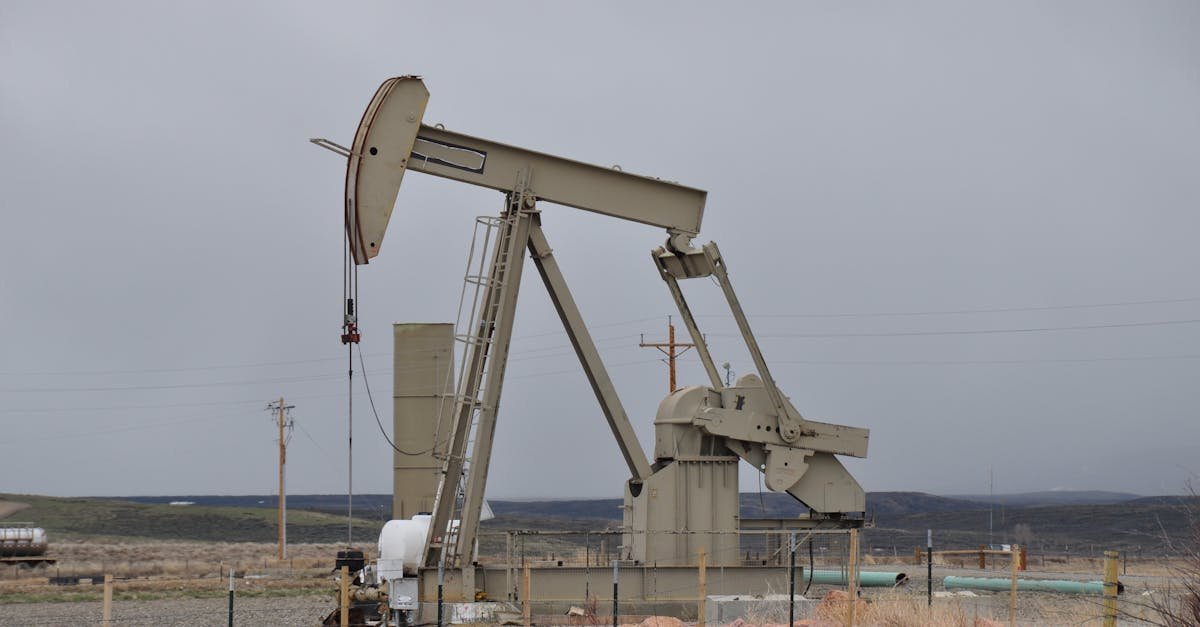Entering the oil business can be a lucrative and rewarding career choice, but it requires careful planning and knowledge of the industry. Whether you’re a recent graduate, a career changer, or simply someone looking to explore new opportunities, understanding the pathways into the oil sector is essential. This article outlines the critical steps you need to take to successfully navigate your entry into the oil business.
| Step | Description |
|---|---|
| 1 | Research the Oil Industry |
| 2 | Identify Your Area of Interest |
| 3 | Acquire Relevant Education |
| 4 | Gain Practical Experience |
| 5 | Network with Industry Professionals |
| 6 | Stay Updated on Industry Trends |
| 7 | Consider Certifications |
| 8 | Apply for Jobs |
| 9 | Prepare for Interviews |
| 10 | Continuously Develop Your Skills |
Research the Oil Industry
Understanding the oil industry is the first step to entering this field. Familiarize yourself with its various segments, including exploration, production, refining, and distribution. Research current market trends, major players, and the impact of global events on oil prices. This foundational knowledge will help you make informed decisions about your career path.

Identify Your Area of Interest
The oil industry is vast and encompasses various roles, from engineering and geology to finance and environmental science. Identify which area excites you the most and aligns with your skills. This clarity will guide your educational choices and career trajectory.

Acquire Relevant Education
Most positions in the oil business require a relevant educational background. Consider pursuing a degree in petroleum engineering, geology, environmental science, or business management. Many universities offer specialized programs that can give you a competitive edge in the job market.

Gain Practical Experience
Hands-on experience is invaluable in the oil industry. Look for internships, co-op programs, or entry-level positions that provide exposure to the field. Many companies offer summer internships for students, which can lead to full-time positions after graduation. Practical experience not only enhances your resume but also helps you build essential skills.

Network with Industry Professionals
Networking is crucial in the oil business. Attend industry conferences, seminars, and workshops to meet professionals in the field. Join relevant associations and online forums to connect with others and gain insights into job opportunities. Building relationships can often lead to job referrals and mentorship opportunities.

Stay Updated on Industry Trends
The oil industry is constantly evolving due to technological advancements and regulatory changes. Stay informed by reading industry publications, following news outlets, and joining online communities. Understanding the latest trends will keep you relevant and may open up new opportunities in your career.

Consider Certifications
Certifications can enhance your credibility and demonstrate your commitment to the industry. Consider pursuing certifications relevant to your area of interest, such as the Certified Petroleum Engineer (CPE) or the Professional Geologist (PG) designation. These credentials can help you stand out in a competitive job market.

Apply for Jobs
Once you have the necessary education and experience, start applying for jobs. Tailor your resume and cover letter to highlight your relevant skills and experiences. Utilize job boards, company websites, and networking connections to find job openings. Be persistent and apply to multiple positions to increase your chances of success.

Prepare for Interviews
<pPreparing for interviews is essential to landing a job in the oil business. Research common interview questions in the industry and practice your responses. Be ready to discuss your experiences, technical knowledge, and understanding of industry trends. Show enthusiasm for the field and a willingness to learn and grow within the company.
Continuously Develop Your Skills
The oil industry is dynamic, and continuous learning is crucial for long-term success. Pursue additional training, attend workshops, and seek mentorship opportunities to enhance your skills. Staying proactive about your professional development will help you advance your career and adapt to changes in the industry.

FAQ
What qualifications do I need to enter the oil industry?
Most positions require at least a bachelor’s degree in a relevant field such as engineering, geology, or environmental science. Internships and practical experience are also highly beneficial.
Is the oil industry a stable career choice?
While the oil industry can be volatile due to fluctuating prices and global events, it offers numerous opportunities. Professionals with specialized skills and experience often find stability and high earning potential.
How can I find internships in the oil industry?
Look for internships through university career services, company websites, and job boards focused on the energy sector. Networking can also help you discover hidden opportunities.
Are there remote jobs in the oil industry?
Yes, some positions in areas like data analysis, project management, and consulting can be done remotely. However, fieldwork often requires on-site presence.
References:
– [U.S. Energy Information Administration (EIA)](https://www.eia.gov/)
– [American Petroleum Institute (API)](https://www.api.org/)
– [Bureau of Safety and Environmental Enforcement (BSEE)](https://www.bsee.gov/)

